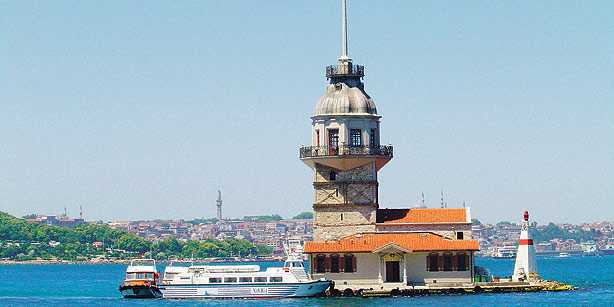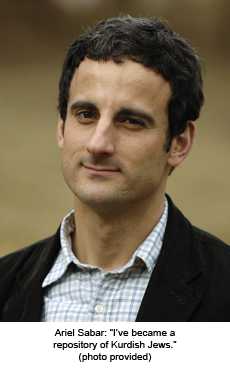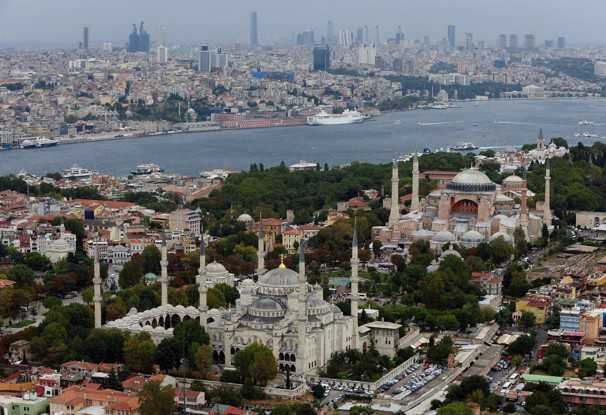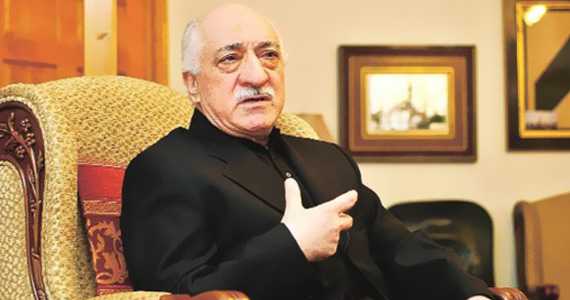IWPR’S REPORTING CENTRAL ASIA, No. 574, April 24, 2009
Government mounts campaign to weed out associates of Nur movement, although its motives remain unclear.
By IWPR staff in Central Asia Bishkek
A Turkish Muslim movement has become the latest target in the Uzbek government’s long and bitter on war on anything it regards as radical Islam.
In a trial that opened in the western city of Bukhara on April 21, nine men are accused of offences under article 244 of Uzbekistan’s criminal code covering religious extremism, separatism, and forming or belonging to an extremist group.
Yet little evidence has been brought to show they were members of an organised group, and none that demonstrates they held extremist views.
The defendants include Ikrom Meryaev, 37, who is deputy head of physics and mathematics at Bukhara University. He and the eight other defendants were arrested in December while meeting at his house.
They are accused of being part of a movement associated with the Turkish Islamic thinker Fethullah Gülen, which is best known in Central Asia for its involvement in running private lycees.
Gülen’s movement is also referred to as Nur (Light), derived from the movement inspired by Said Nursi, an Islamic thinker in Turkey who died in 1960.
In the early Nineties, Turkish lycees sprang up all over the region, attracting the children of the elite.
Uzbekistan encouraged these schools as a way of fostering political relations with the Turks, who had become interested in their ethnic kin in Central Asia after the fall of the Soviet Union.
When a series of bombs went off in the Uzbek capital Tashkent in 1999, the authorities blamed two groups – the armed insurgents of the Islamic Movement of Uzbekistan, IMU, and the covert party Hizb ut-Tahrir.
Soon afterwards, in 2000, the government closed the Turkish schools, apparently out of a fear that they were secretly encouraging Muslim irredentism.
Although the lycees with Gülen supporters on staff did not teach an openly religious agenda, and the Nur movement’s published ideas have nothing in common with the revolutionary fundamentalism of the IMU and Hizb ut-Tahrir, the Uzbek authorities appear to have tarred them all with the same brush.
Recent months have seen a series of arrests of alleged “Nurchilar”, as members of the Gülen group are called in Uzbek.
The latest court case comes shortly after another trial ended in long jail terms for three alleged Nur members accused under the same criminal code article on religious extremism.
Shavkat Ismoilov, who ran a newspaper called Yetti Iklim (“The Seven Zones”), and Davron Tojibaev, who was chief editor of a magazine called Irmoq (“Wellspring”), got eight years each when sentence was passed on April 9. Mamadali Shahabiddinov, the imam or prayer leader at the Makhtub Eshon mosque in Namangan, received a 12-year term.
Yetti Iklim and Irmoq made no secret about publicising Said Nursi’s ideas. Yet in 2007, both publications went through the onerous registration process which screens out anything the Uzbek authorities regard as politically controversial or undesirable – there are no opposition media in the country.
Both the paper and the magazine have now been closed down.
On February 26, five other members of staff at Irmoq were sentenced to between eight and 12 years, on charges of distributing information that presented a threat to public security, and involvement in the Nur organisation.
The court heard evidence from prosecutors that the defendants were graduates of Turkish-run lycees.
At this trial, the accused did not deny spreading Said Nursi’s ideas, but rejected claims that this equated to Islamic extremism.
“I am against any kind of extremism and I fully support the policies of the Uzbek government,” said one of the defendants, Bahrom Ibrahimov, who got 12 years.
Anvar Mamedov, the lawyer who defended the men, said little hard evidence was produced that his clients had published dangerous material.
“The [court’s] findings stated that the general context of the articles might constitute a threat to public security, yet they failed to cite specific sentences or phrases that count as extremist,” he said.
One human rights group in Uzbekistan, Ezgulik, reports that a total of 50 suspected Nur sympathisers have been arrested around the country. According to Ezgulik activist According to Abdurahmon Tashanov, police are rounding up people who attended Turkish lycees in the past.
One of these former pupils told told IWPR how he was summoned for questioning by the National Security Service, SNB.
“They won’t leave us in peace,” he said. “I’ve got nothing to say to them, as I have nothing to do with the Nur people.”
As is common in a country where state media are used to relay messages from government, the multiple prosecutions have been accompanied by the repeated airing of a TV documentary claiming to show the true face of the Nur movement.
Entitled, “The light that brings darkness”, the TV programmes used information from Uzbekistan’s National Security Service to underpin its argument that education was merely a tool to secretly train Nur activists for the ultimate goal of creating Islamic states from Turkey to Central Asia.
“The so-called educational and charitable assistance provided by the Nursi sect is a threat to the national values of the Uzbek state,” the narrator said at one point.
Analysts question whether the Gülen movement poses even a remote danger to a police state like Uzbekistan, or whether the security services have simply got into the way of identifying Islamic groups as enemies that need to be rooted out.
“They are looking for enemies where there are none, “said Tashpulat Yoldashev, an Uzbek political analyst now living abroad.
“What religious organisation could function under the nose of the Uzbek SNB? That’s impossible, given the way the current regime operates.”
Uzbekistan’s president, Islami Karimov, harassed secular opposition groups out of existence by the early Nineties, and then turned his attention to Islamic groups, clearly fearing that any form of religious expression not controlled by the state might provide a channel for expressions of popular dissent.
He began by eliminating those Islamic clerics who did not share his vision of religion as an instrument of state policy. This clampdown led to the emergence of the IMU, which conducted armed guerrilla raids in 1999 and 2000 – resulting in mass arrests.
The radical Hizb-ut-Tahrir was dealt with by similarly indiscriminate waves of arrests, although it continues to operate covertly.
The government continues to see anything that looks like an uncontrolled expressions of Muslim faith. Gülen’s published views are apolitical and he calls for interfaith dialogue and tolerance. For Uzbekistan’s leaders, it seems to be enough that his followers talk about Islam, and that their inspiration is foreign.
 ISTANBUL – A Turkish government official said Monday a draft law to establish an undersecretariat to help counter-terrorism units was opened to signature.
ISTANBUL – A Turkish government official said Monday a draft law to establish an undersecretariat to help counter-terrorism units was opened to signature.




